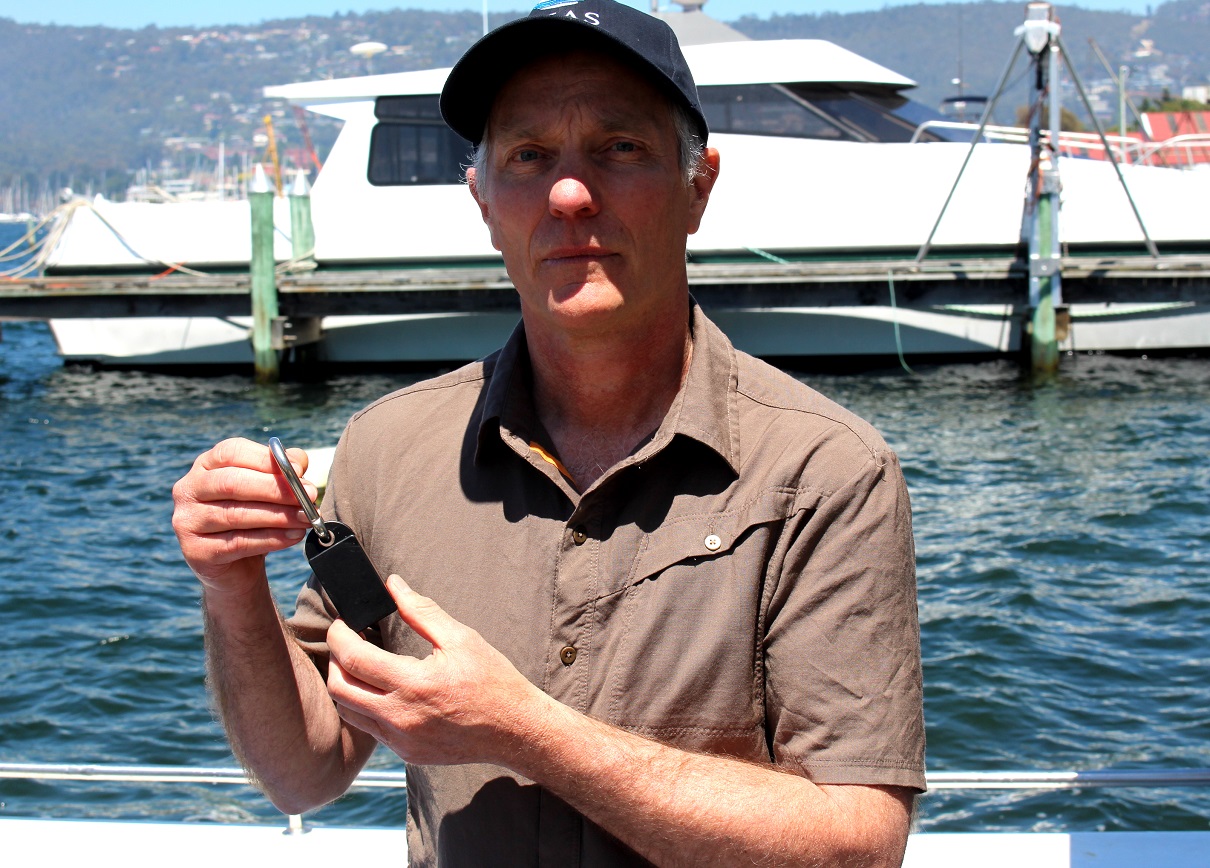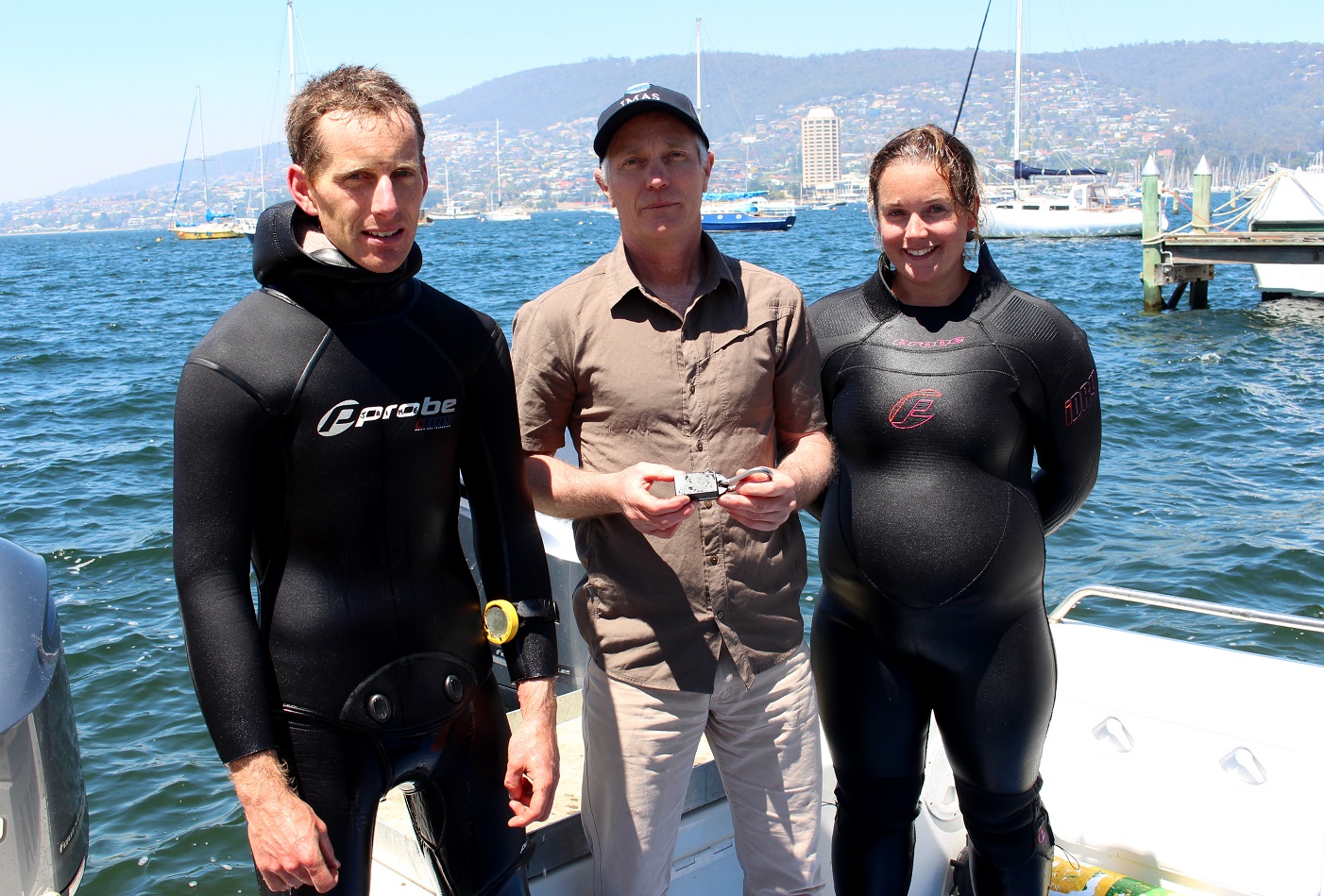
Four years after its adoption, a locally designed and manufactured innovation is providing unprecedented insights into Tasmania’s abalone fishery, helping to improve sustainability and productivity in the lucrative industry valued at around $100 million annually.
IMAS researcher Dr Craig Mundy today unveiled the latest version of a small depth data logging device which has been worn by all Tasmanian abalone divers since 2012, providing invaluable data on their fishing efforts as well as the state of the fishery.
Dr Mundy said Tasmania lead the world in the quality of data collected about its abalone fishery, with the information used for setting quotas and other regulations.
“The GPS and depth data logger system that we developed is world-leading technology that collects unique information on the abalone fishery,” Dr Mundy said.
 “It allows us to see when and where fishers dive, and how far and deep they need to swim to take the catch. Divers are happy to participate because we protect the confidentiality of their favourite fishing spots.
“It allows us to see when and where fishers dive, and how far and deep they need to swim to take the catch. Divers are happy to participate because we protect the confidentiality of their favourite fishing spots.
“In the past we relied on logbook records from divers which gave us location information on the scale of tens of kilometres. This new data is on the scale of tens of meters so we can start to monitor the health of individual reefs.
Photo: IMAS divers Jaime McAllister (left) and Sarah-Jane Pyke with Dr Craig Mundy, displaying the data logger
“It can help us to make judgements about the overall state of the abalone fishery. For example, we can tell that abalone stocks are healthier when divers travel more slowly over reefs and don’t spend time moving their boat from area to area.
“The GPS logger also ensures that when we undertake scientific dives to study abalone and the condition of the fishery we are doing it in the right places, where commercial divers are fishing, maximising benefit from our research funding.
“As we build a comprehensive picture of the fishery over time we can use this information to inform up to date harvest management strategies and quotas based on accurate, real time data.
Dr Mundy said the GPS data loggers are designed and produced locally by the Kingston-based electronics company SciElex, with the latest version designed by recent University of Tasmania engineering graduate Shane de Deuge.
The loggers have been used throughout the abalone industry thanks to support from the Tasmanian Abalone Council (TAC).
IMAS’s research into the abalone fishery and the development of the data logger has been funded by the Australian Government through the Fisheries Research and Development Corporation (FRDC) and supported by the Tasmanian Government.
“Without the cooperation and support of divers, the TAC, the broader industry, the FRDC and State Government none of our fine-scale scientific work would have been possible.
“I thank them for their support, which is allowing our abalone research to help build a more sustainable fishery for the future,” Dr Mundy said.